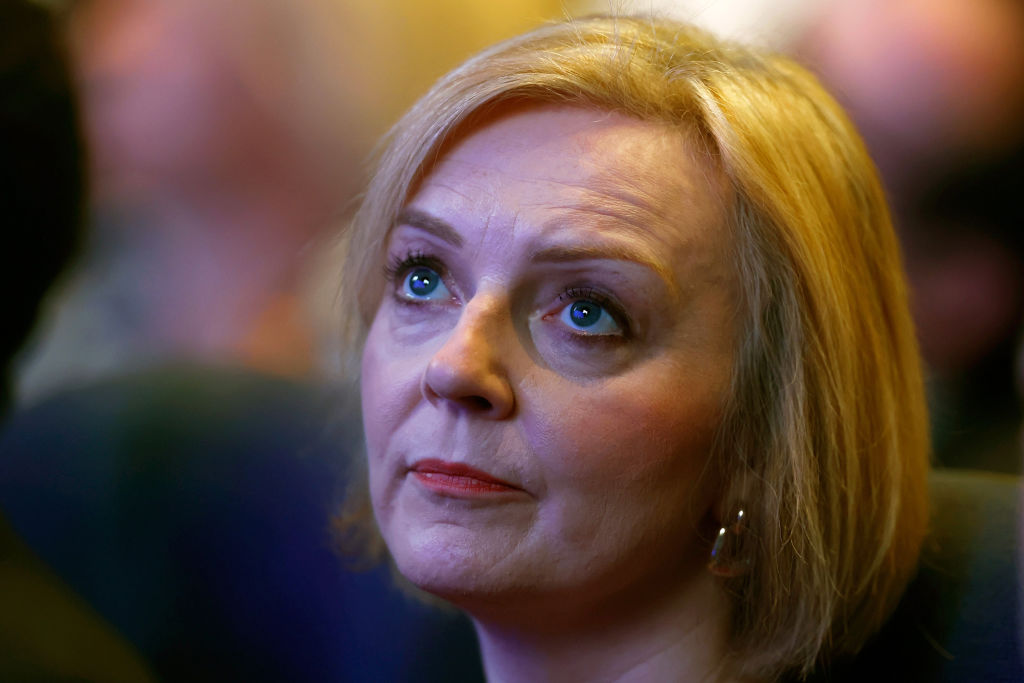Twenty four hours is a long time in politics. Just yesterday, Liz Truss appeared on the BBC for her official set piece Tory conference interview to declare that she stood by all the measures in her Chancellor’s not-so-mini Budget – including, she said, her controversial plan to cut the top 45p rate of tax for the highest earners. After just one day into conference, Truss has decided to change course.
This morning, Chancellor Kwasi Kwarteng has made a statement reversing plans to scrap the 45p rate of income tax – just 10 days after he announced it. ‘We get it, and we have listened,’ he said. In an interview with Radio 4, Kwarteng tried to play down the significance of the measure – suggesting it was distracting from wider help the government was offering and this had become clearer after conversations with lots of people. He also appeared to row back from comments last week about more tax cuts to come – telling Robinson the government had published its growth plan when pressed on whether there would be further measures.
To have to change tack on a flagship policy this early on is a clear sign of trouble ahead
What’s behind the climbdown? As soon as the measure was announced Labour were quick to weaponise it – arguing that it showed the Tories were prioritising the rich during a cost-of-living crisis. It’s also one of a few factors believed to have spooked the markets and thereby contributed to the economic turmoil that followed Kwarteng’s fiscal event. Here’s how the pound has reacted so far:-
But this wasn’t really about economics. The cost of the 45p tax cut was just £2bn, vs £60bn for her fuel bill subsidies – yet the far-smaller tax cut was getting much more attention. “Drowning out a strong intervention on energy,” said Kwarteng. So the problem was political – and the biggest issue for the new Prime Minister was how it landed with Tory MPs. Some of whom had indicated that they could not vote for it.
Michael Gove kickstarted his Tory conference suggesting he could vote against the Budget as a result. Other Tory MPs voiced similar concerns – with more likely to come out in the coming days. While party chairman Jake Berry suggested in an interview that the whip could be withdrawn against anyone who voted against such a measure, this was viewed as unhelpful by some government aides – given it raised the stakes even further.
The reaction to the measures by MPs led Truss to yesterday come to the conclusion that she needed to change course. She met with her Chancellor to agree a plan last night. Other changes could eventually follow too. One other option under consideration is to bring forward the Chancellor’s ‘fiscal plan’ – where he will set out the government’s borrowing rules and also publish forecasts – which was due 23 November.
So, how humiliating is this? “We will stay the course,” Kwarteng was due to say in his speech today, in text already released to journalists. Not so much, it seems. Expect the day to be filled with talk that Truss has lost a huge amount of political capital and is a severely weakened prime minister. To have to change tack on a flagship policy this early on is a clear sign of trouble ahead. However, to press on would have put Truss at loggerheads with her party – with MPs already asking questions about how long she could stay in post. By choosing to U-turn, Truss has lost political authority. Yet the decision will also come as a relief to many in her party that she is listening to their concerns.
For a full list of Spectator Tory conference fringe events, click here
This article is free to read
Subscribe and get your first month of online and app access for free.








Comments
Join the debate, free for a month
Be part of the conversation with other Spectator readers by getting your first month free.
UNLOCK ACCESS Try a month freeAlready a subscriber? Log in